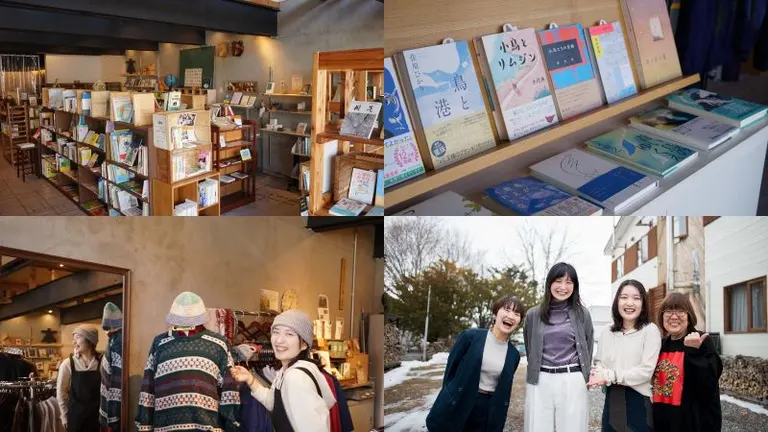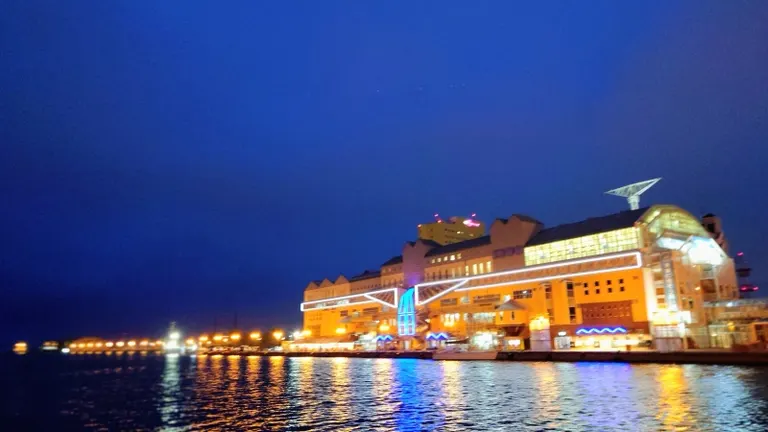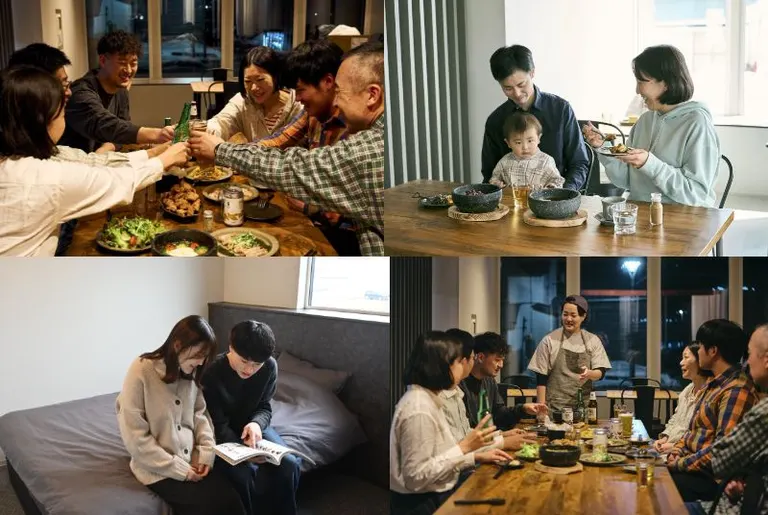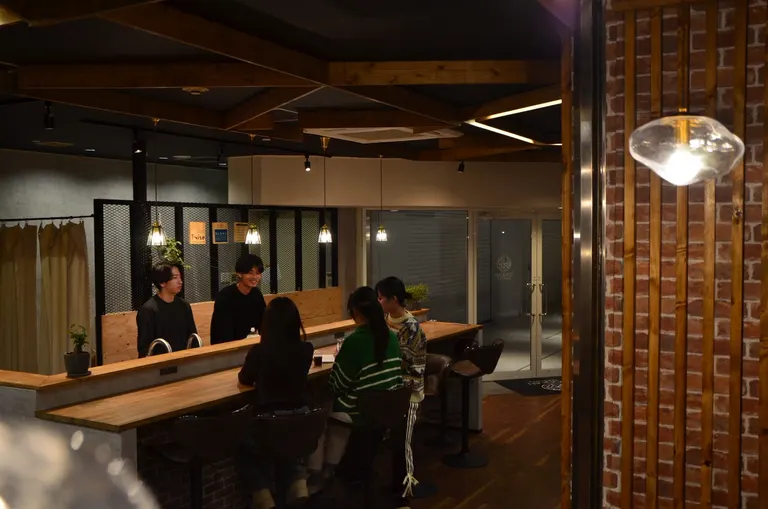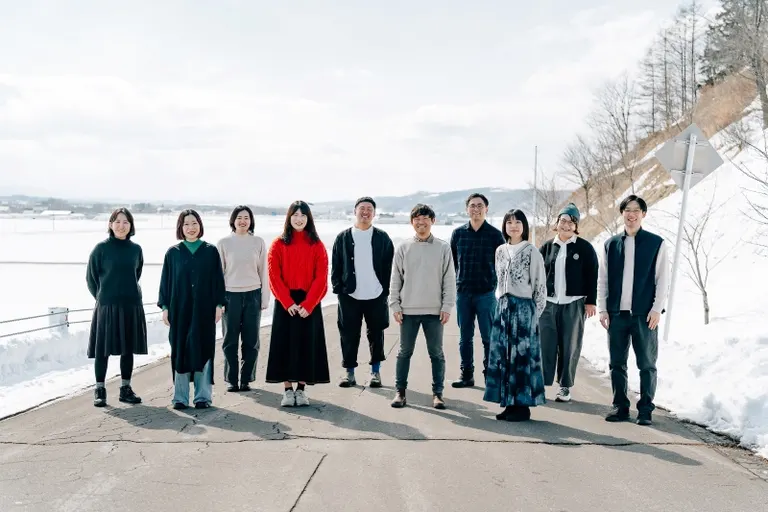
ARTICLES
We want to be conscious of the blessings from our region. The 'Local Secretariat' role that Dot Dōtō arrived at upon its 5th anniversary.
The Strong Sense of Ownership Fostered by the "Doto" Unit
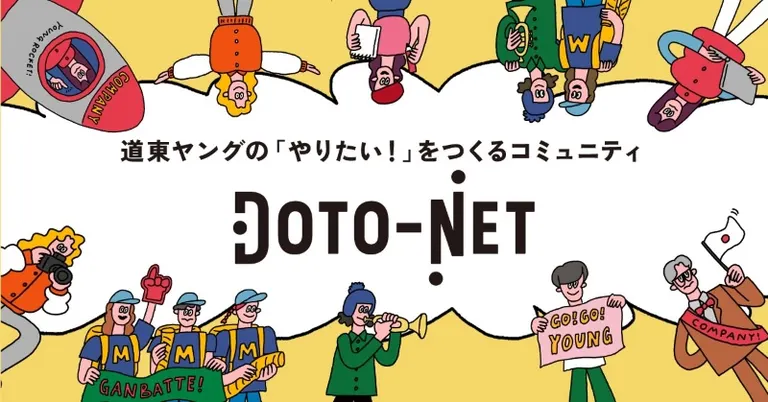
――Starting with event planning, you've steadily expanded your business to include guidebook production and work with local governments. Your next step was the launch of a service called 'DOTO-NET.' Could you tell us what led you to start this?
Nakanishi: To put it simply, we wanted to create a scheme that would generate reinvestment within the region. It's the idea of "Since we're benefiting from the satoyama, let's give back to the satoyama." I'm back to the satoyama analogy again (laughs).
The concept of 'DOTO-NET' is to fully support young people aged 29 and under. We've created a system where older generations, companies, and local governments in Doto provide the funds, which in turn helps young people realize their potential. .doto is the organization that executes these measures.
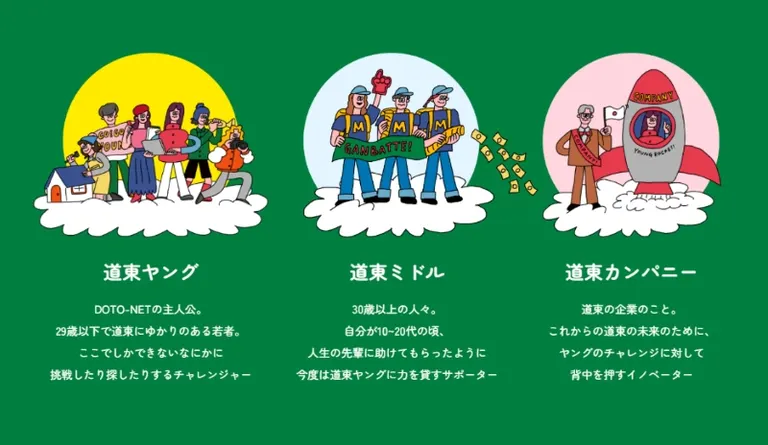
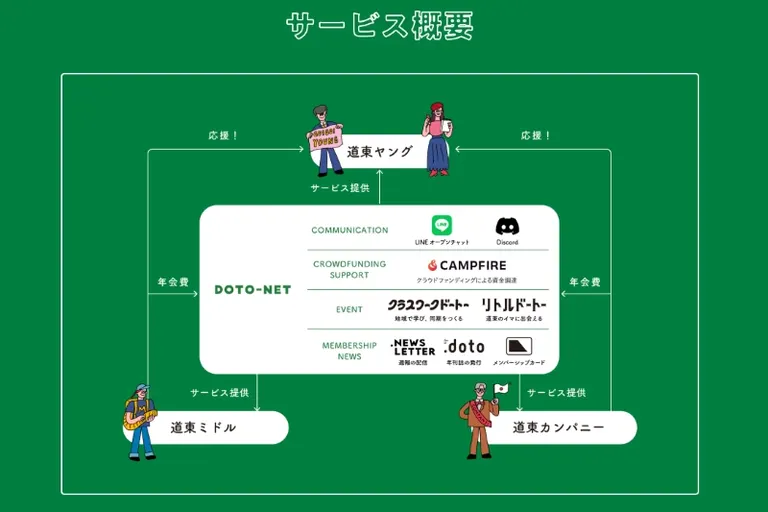
Overview of 'DOTO-NET'
――That's exactly the position of a secretariat.
Nakanishi: Exactly. The reason we created this service is that if we do nothing, the region's population will continue to decline. When that happens, unless we increase the number of high-performing individuals, we won't be able to maintain our social services and infrastructure, right?
The current population of Doto is about 900,000, but it's projected to drop to 650,000 by 2045. That's a decrease of about 30%. Of course, technological advancements will compensate for some of it, but looking at the numbers alone, it means each person will have to work about 1.5 times harder to maintain the current standard of living. In other words, if we don't nurture high-performing individuals and create an environment where each person can exert their full potential, Doto could collapse. With that in mind, it makes sense for the people, companies, and local governments of Doto to invest properly in the young people who will support the future of this region, doesn't it?
――So you started this initiative to support young people out of that sense of crisis.
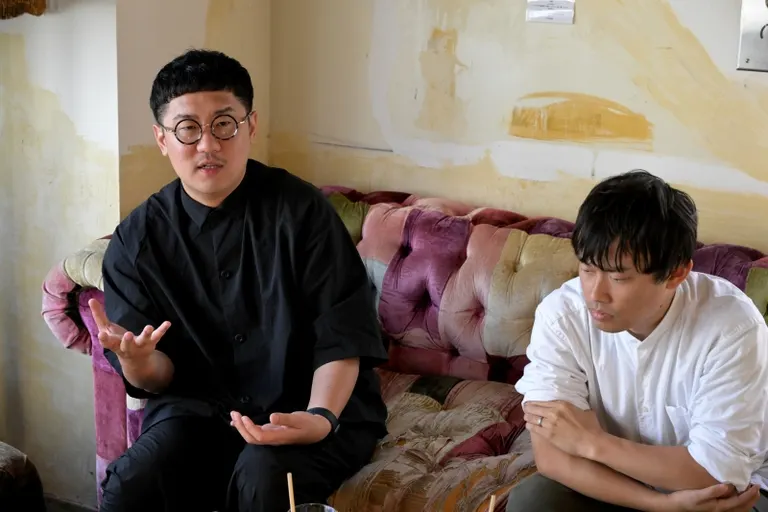
Nakanishi: Until now, there was no such system, so young people who wanted to do something had to do it on their own. But with support from the community, it becomes easier for anyone to take on a challenge, and the chances of it taking shape increase, right?
People who achieve success that way won't forget the support they received, and I think it will create a desire in them to support others. Like, "I harvested a lot of nuts, so I'll give back to those around me." If that happens, I believe we can create an ecosystem of continuous reinvestment.
――So it's a cycle where young people who received support from the community grow and then become supporters themselves.
Nakanishi: Looking at the people participating in 'DOTO-NET,' there are currently more older members and companies offering support than there are young people receiving it.
――Wow! That must be because it's an area with many people who see the community's issues as their own. It's hard to imagine the same thing happening in Tokyo.
Nakanishi: That might be true. As people grow to love their region, I think the desire to give back comes naturally. I believe .doto's role is to foster that feeling and build momentum to make it a better region.
Through our activities at .doto, we've seen many examples of how the support of those around us leads to someone's self-realization. If not just us, but everyone in the community gets involved as if it's their own concern, the number of people we can support will increase, right? I believe that offers a ray of hope for a region facing continued population decline.
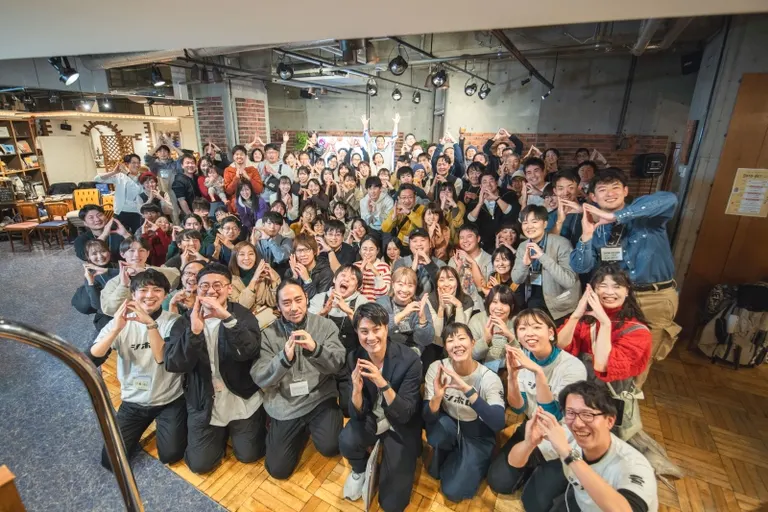
The 'DOTO-NET' launch event
Nozawa: From our perspective, 'DOTO-NET' is what we've been doing all along. Everything .doto has done is like 'DOTO-NET.' We just want to do it together with the people, companies, and local governments of the region now.
I believe I was the very first beneficiary of .doto's initiatives. They pulled me up when I knew nothing. Because I've had that experience, I want to make it a place where people who, like my former self, want to do something can get involved. If there's a young person with no experience who wants to do creative work in the future, we'll take them to an interview site. If someone wants to open a shop, we'll introduce them to someone who already has one. If there's anyone with even a millimeter or two of interest, I want to keep pulling them up.
――Have any projects already taken shape through 'DOTO-NET'?
Nozawa: There's a communication tool that all participants can see, and young people post what they want to do there. There aren't many yet, but we want to make what's written there a reality as much as possible.
Recently, someone said, "I want to communicate with the DOTO-NET people through an asparagus harvesting experience." So we connected them with a farmer, gathered participants, and everyone went to harvest asparagus together. Afterward, the person who planned it said, "I realized that what I say can actually happen," which made me incredibly happy.
――Having what you wanted to do become a reality is a huge successful experience.
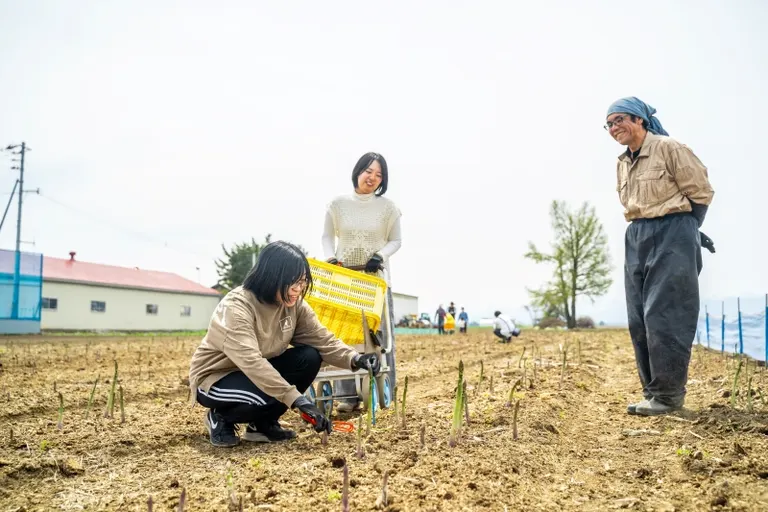
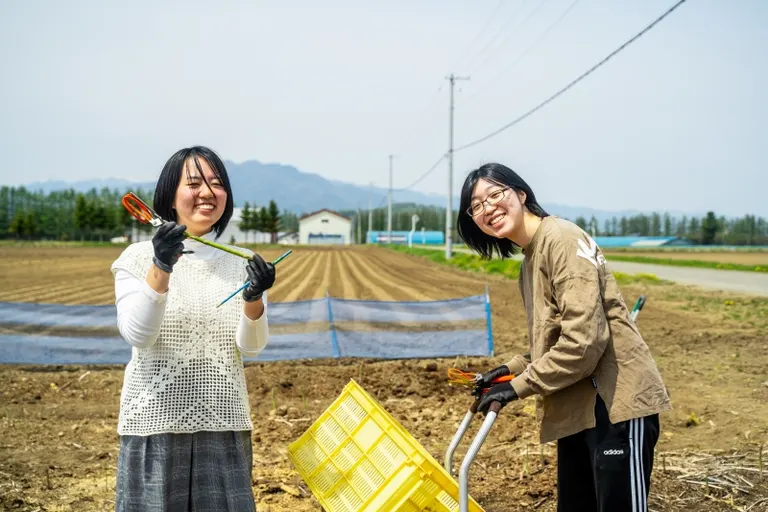
An asparagus harvesting experience made possible through 'DOTO-NET'
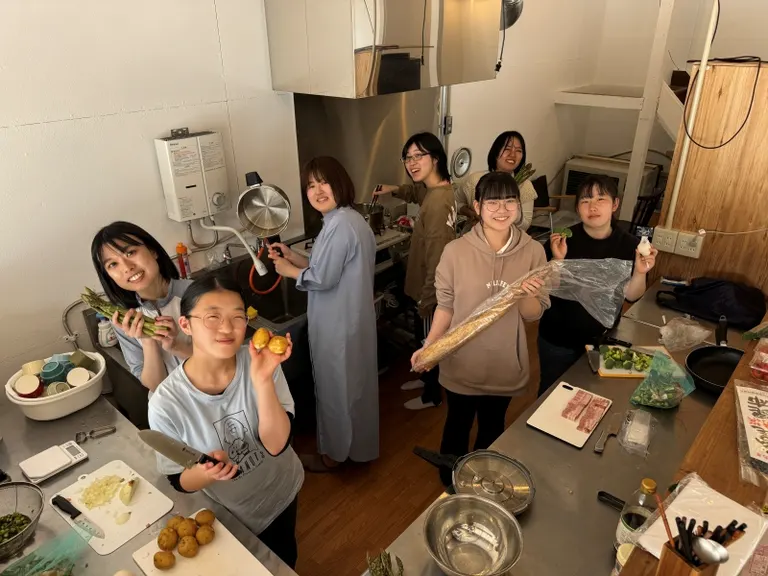
A meal featuring Tokachi ingredients, made possible through 'DOTO-NET'
Nakanishi: For the local governments that have joined and are supporting 'DOTO-NET,' we've opened up functions like news releases. They are also concerned about population outflow, so if we can develop 'DOTO-NET' into an interface that delivers information to young people interested in Doto, I think it will become an irreplaceable service.
Doto has few universities, so many people leave the region after graduating high school, which is a major source of population outflow. But if we could create a situation where everyone joins 'DOTO-NET' before leaving Doto, it would serve as a point of contact when they want to connect with their hometown. Conversely, I think it's important for the region to be able to access people who have left. Until now, relationships tended to be severed once people moved away.
――The phrase 'becoming a hub' is often used in regional initiatives, but .doto seems to be breaking that down to the level of administrative tasks and executing it.
Nakanishi: I think these kinds of initiatives have traditionally been structured in a way that the people who act as hubs have to keep doing it forever. But we can't reach our ideal vision if it's just us doing it. However, if the number of people who feel the same way and take action with a sense of ownership for the region increases, I believe the region will steadily change.
Nozawa: When you become a hub, you tend to end up holding onto the people you're connected with. But I think we need to be conscious of letting the people we connect with have various experiences and then 'graduate.' If people with the same passion spread out and become active beyond our reach, we should be able to reach our ideal faster.
From a business perspective, letting go of valuable connections might seem negative, but if we can grit our teeth and create a flow where people and activities that care about Doto become autonomous and decentralized, that would be great.
――Like you create a field yourselves, and the saplings that grow there spread to various places, increasing the trees in the satoyama.
Nakanishi: There it is, the satoyama theory (laughs).
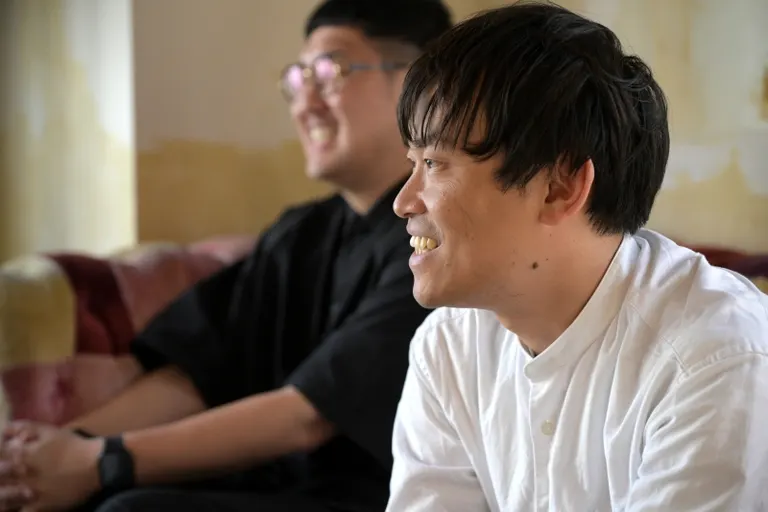
Nozawa: Kids who interned with .doto during their university days have spontaneously created a 'Tokyo Doto Club' in Tokyo. Young people from Doto that even we don't know are gathering there. Recently, it seems a Doto Club has also been established in the Kansai region. People are bringing in more people, and places for those who care about Doto are popping up one after another.
――That's amazing. Truly autonomous and decentralized.
Nakanishi: It's amazing, isn't it? If it weren't for the broad category of 'Doto,' the people gathering there would just be from different regions. The extent of their connection would probably be 'Oh, we're both from Hokkaido.' But whether you're from Kitami or Kushiro, when you look at it through the lens of Doto, you can see each other as being from the same region.
We all belong to multiple layers, right? We're citizens of Earth, we're Japanese, and we're also people of Doto. As the unit gets smaller—Doto, Kitami, the same high school—the sense of ownership becomes stronger. I think that then gets reflected in our actions, like 'I'd rather buy ingredients from Doto,' or 'Since this is a job in Kitami, I want to ask someone from Kitami to do it.'
――In that sense, 'Doto' is probably a unit that's neither too big nor too small for fostering a sense of ownership.
Nakanishi: This might be tooting our own horn, but I think one of our achievements is that more people are now using the word 'Doto' as their own. Before, it was just a unit for dividing up the region; no one had an emotional investment in it. I believe .doto's activities have been a catalyst for giving the Doto region an identity.






